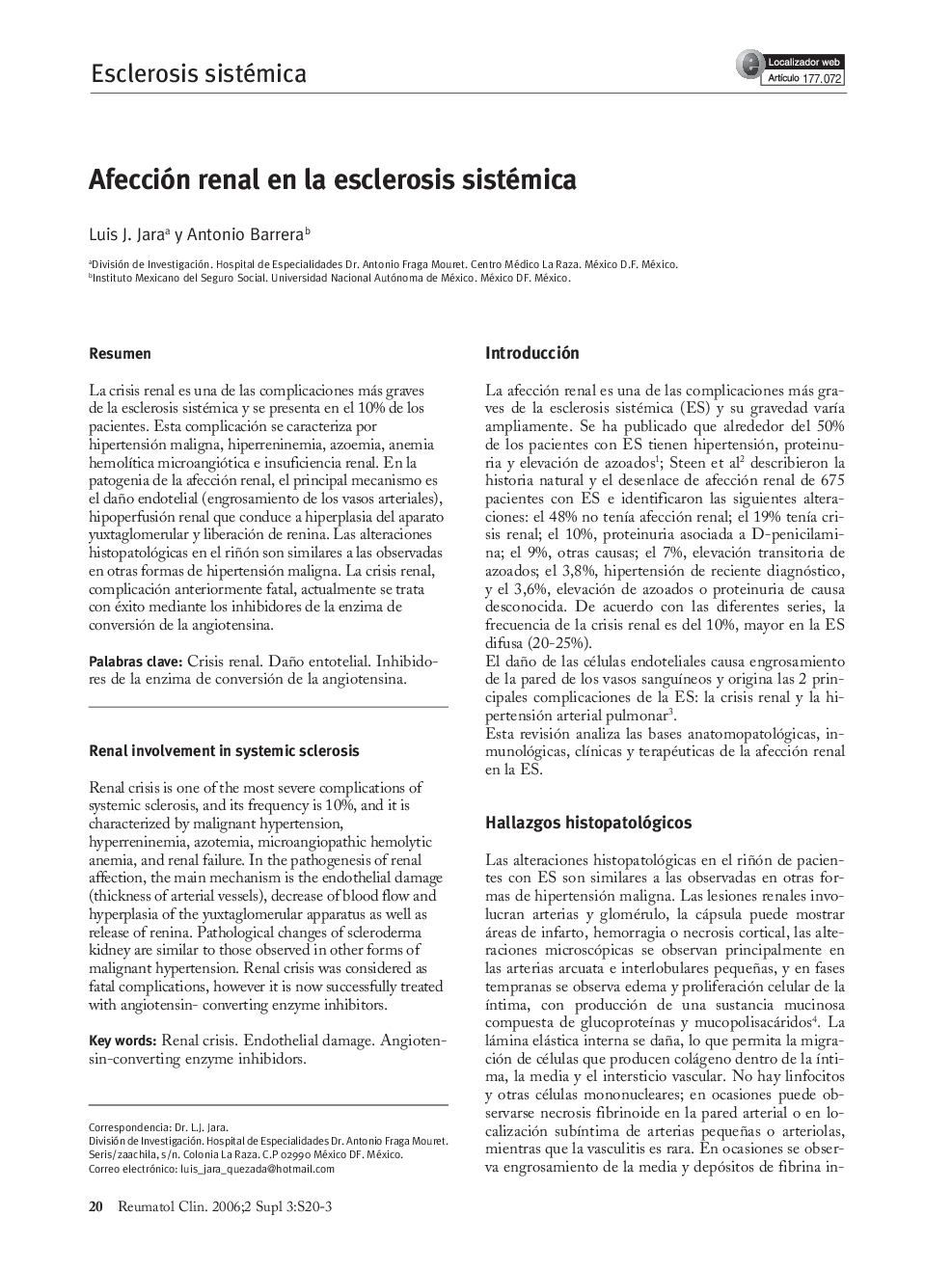| Article ID | Journal | Published Year | Pages | File Type |
|---|---|---|---|---|
| 3383788 | Reumatología Clínica | 2006 | 4 Pages |
Abstract
Renal crisis is one of the most severe complications of systemic sclerosis, and its frequency is 10%, and it is characterized by malignant hypertension, hyperreninemia, azotemia, microangiopathic hemolytic anemia, and renal failure. In the pathogenesis of renal affection, the main mechanism is the endothelial damage (thickness of arterial vessels), decrease of blood flow and hyperplasia of the yuxtaglomerular apparatus as well as release of renina. Pathological changes of scleroderma kidney are similar to those observed in other forms of malignant hypertension. Renal crisis was considered as fatal complications, however it is now successfully treated with angiotensin- converting enzyme inhibitors.
Related Topics
Health Sciences
Medicine and Dentistry
Immunology, Allergology and Rheumatology
Authors
Luis J. Jara, Antonio Barrera,
